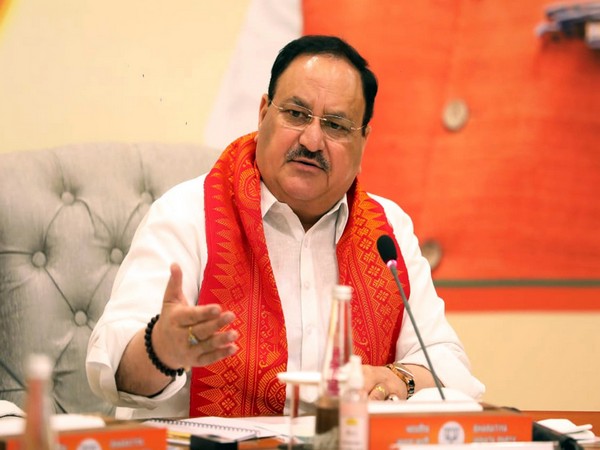19th ICDRA: JP Nadda emphasized India's role in ensuring affordable access to medicines and vaccines worldwide
The Union Health Minister emphasized India's role in ensuring affordable access to medicines and vaccines worldwide, particularly during the pandemic.

- Country:
- India
Shri Jagat Prakash Nadda, Union Minister of Health and Family Welfare, inaugurated the 19th International Conference of Drug Regulatory Authorities (ICDRA) in New Delhi today, marking a significant milestone for India as it hosts the event for the first time. The prestigious five-day conference, held from October 14th to 18th, is organized by the Central Drugs Standard Control Organization (CDSCO) under the Ministry of Health and Family Welfare, in collaboration with the World Health Organization (WHO). The event gathers regulatory authorities, policymakers, and health officials from over 194 WHO member states to discuss global drug regulation, healthcare challenges, and future strategies.
In his address, Shri JP Nadda highlighted India’s growing role as a global leader in healthcare, particularly during the COVID-19 pandemic. He emphasized India’s rapid expansion of healthcare infrastructure and vaccine production, which helped the nation meet both domestic and global needs. “India's success in rolling out the COVID-19 vaccination program, covering over a billion people, reflects the robustness of our healthcare system and the dedication of our health workers,” Nadda said, reaffirming India's status as the "Pharmacy of the World."
The Union Health Minister emphasized India's role in ensuring affordable access to medicines and vaccines worldwide, particularly during the pandemic. Guided by the philosophy of ‘Vasudhaiva Kutumbakam’—the world is one family—India provided life-saving drugs and vaccines to more than 150 countries. “Our progress is inseparable from the progress of the world. We remain committed to global health security and sustainability,” Nadda added.
Shri Nadda also praised the ICDRA platform, stating that it fosters knowledge sharing and collaboration to strengthen regulatory frameworks globally. He emphasized that the Central Drugs Standard Control Organization (CDSCO) has developed robust systems for drug and medical device approvals, ensuring the availability of quality medicines at affordable prices for both domestic use and exports to more than 200 countries.
The Union Health Minister also touched upon India's digitization efforts in regulatory processes, with over 95% of the processes at CDSCO now digitized, improving transparency and trust among stakeholders. He outlined the expansion of drug testing laboratories across the country, with eight mini-labs at different ports facilitating quick testing and release of imported drugs and raw materials.
Nadda also emphasized India's commitment to medical device regulation, highlighting amendments in the Drugs Rules to align with WHO-GMP guidelines. The introduction of mandatory QR codes on the top 300 drug brands and active pharmaceutical ingredient (API) packs is also aimed at strengthening the drug supply chain.
Global Collaboration and WHO’s Perspective
Dr. Tedros Adhanom Ghebreyesus, Director-General of WHO, commended India for hosting the event and highlighted the significance of global cooperation in drug regulation, especially in tackling challenges like antimicrobial resistance and integrating artificial intelligence (AI) into healthcare.
Dr. Saima Wazed, Regional Director of WHO Southeast Asia, noted India’s leadership as the largest provider of generic medicines and the third-largest pharmaceutical producer globally. She emphasized the need for regulatory convergence and information sharing to achieve universal health coverage.
India's Pharmaceutical and Regulatory Achievements
Smt. Punya Salila Srivastava, Union Health Secretary, underlined the Indian pharmaceutical sector’s integration into the global supply chain, with the country now being the fourth-largest export sector. She highlighted India’s contribution to global health, noting that India supplies 50% of the world's vaccines, many of which are distributed through international organizations such as WHO, UNICEF, and GAVI.
India’s role as the "Pharmacy of the World" was further emphasized by Ms. Malebona Precious Matsoso, Co-Chair of WHO's Intergovernmental Negotiation Body from South Africa, who spoke about the high expectations placed on India due to its pharmaceutical capabilities.
Regulatory Innovation and Challenges
Dr. Rajeev Singh Raghuvanshi, Drugs Controller General of India, detailed India’s progress in regulatory processes, including the approval of India’s first CAR T-cell therapy, a cutting-edge cancer treatment. He stressed India’s focus on “low regulation, high execution” to streamline drug approval processes while maintaining high safety and quality standards.
In a precursor to the conference, an exhibition showcased India’s innovation and leadership in pharmaceuticals, medical devices, and clinical research. The exhibition drew international stakeholders and highlighted India’s growing influence in the global healthcare sector.
Key Sessions and Discussions
Over the course of the five-day conference, the ICDRA will feature several plenary sessions and workshops, where global regulatory authorities and industry leaders will deliberate on pressing healthcare and regulatory challenges, including:
Smart Regulation and World Listed Authorities Framework: Discussions on regulatory reliance, harmonizing global processes, and enhancing international cooperation.
Medical Devices Regulation: A significant focus on regulating In Vitro Diagnostics (IVDs) and medical devices in alignment with global and regional frameworks.
Artificial Intelligence in Healthcare: Exploring the use of AI in improving regulatory oversight and addressing challenges related to data privacy and ethical implementation.
Pharmaceutical Starting Materials: A workshop focusing on stringent regulations for the quality and safety of pharmaceutical products from inception to market.
COVID-19 Pandemic Lessons: A plenary session reflecting on the regulatory innovations during the pandemic and the need for ongoing preparedness for future health crises.
The conference will also host bilateral and multilateral meetings to facilitate discussions on regulatory challenges, opportunities, and collaborative efforts to address global health needs.
The 19th ICDRA underscores the critical importance of international collaboration in strengthening regulatory systems and addressing global health challenges. It reinforces India’s position as a key player in the global pharmaceutical landscape and its commitment to contributing to a healthier, safer, and more resilient world.
Key Figures in Attendance
Dr. Rajiv Bahl, Secretary of the Department of Health Research and Director General of ICMR, along with senior officials from the Ministry of Health, WHO representatives, and international regulatory bodies, were present at the inauguration.
The ICDRA serves as a critical platform for driving global regulatory innovation and fostering partnerships that will shape the future of healthcare and drug regulation worldwide.










